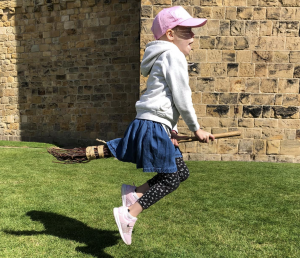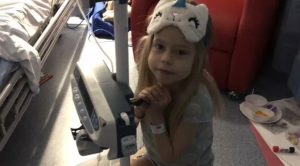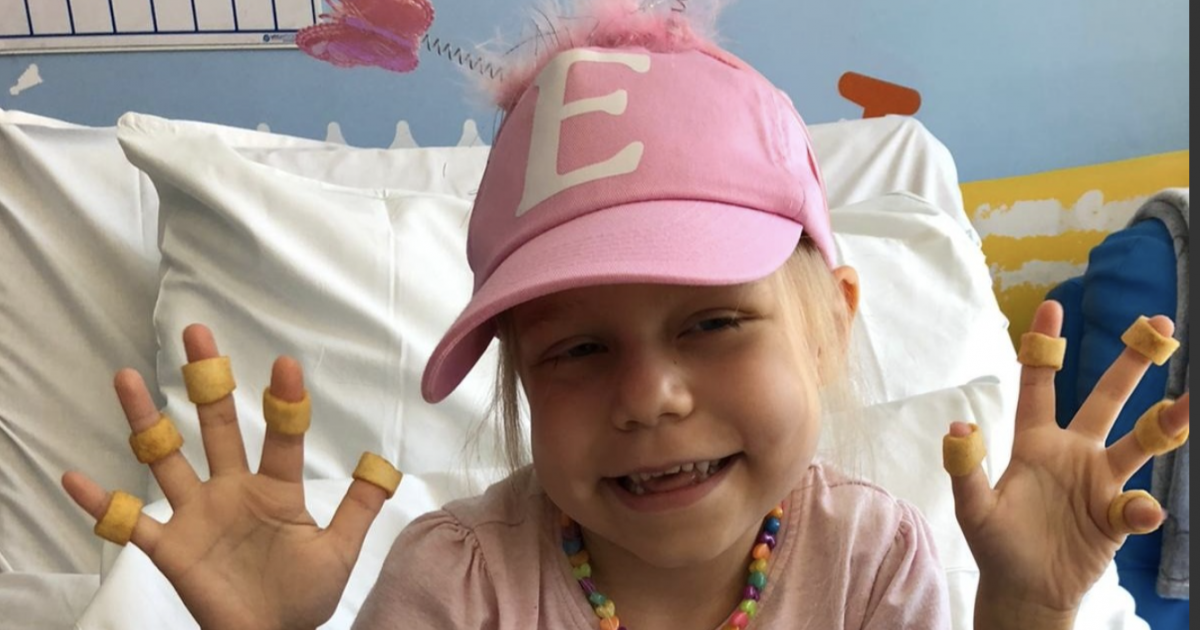A shattered family is trying to pick up the pieces after learning their young daughter is battling stage IV neuroblastoma.
Eden Smith, 6, first complained to her parents about her legs being sore in March.
Read More
That reassurance prompted the couple to send Eden to school once Easter break ended, but in the end, she could not even make it through her first day.
"When she returned to school on the Monday following the Easter break, she was sent home on the first day because she was complaining of leg pain, drip-white and shaking," recalled Jen. "Windows in school were constantly open due to clean airflow needed to reduce risk of Covid, but this was more than her just being cold."
Remsden decided to bring her daughter for an in-person visit, but an X-ray showed no evidence of a broken leg.
Eden returned to school the next day and once again could not make it through the day.
A few days later, Remsden took Eden to see a specialist, who was very concerned about her symptoms.
The doctor ordered bloodwork, an MRI, and a CT scan for young Eden. Soon after, Smith and Remsden met with the doctor.
It was not good news.
"Eden, our beautiful six-year-old little girl, had cancer," recounted Jen.

The family was then shuttled off in an ambulance so that doctors could get a better idea about the severity of the disease.
Once again, it was not good news.
"Lee and I were again escorted into a room with doctors who broke the even-more devastating news that Eden has a stage 4 neuroblastoma," said Jen.
However, there was no time to wallow, as Eden needed chemotherapy immediately to have any hope of beating the disease.
Eden and Remsden stayed at the hospital while Smith struggled to digest the events of the previous 24 hours.
"When I heard the news, I was numb, confused, and filled with fear," said Lee. "I don't think it really kicked in straight away as we were separated after the news. "
The chemo treatment would last 80 days, at which time doctors hoped that the primary tumor would shrink enough in size for surgery.
The grueling treatment did work, but the tumor did not shrink enough for doctors to operate.
And so Eden headed back for five additional rounds of chemo last month.
The first three rounds are complete, and the hope is that come December 15, doctors can finally remove Eden's tumor from her abdomen.
Remsden and Smith are hopeful, but they face an uphill battle even if the surgery is successful.
"This is a rare form of children's cancer which is diagnosed in fewer than 100 children a year," Smith explained. “Fifty percent of these are classed as high-risk neuroblastoma like Eden's. Survival rates for high-risk neuroblastoma are around 50 percent, and of those survivors, 60 percent of them will suffer a relapse."
He then noted: "After relapse, the survival chances are around 15 percent."
The family now hopes to raise money to eliminate the possibility of relapse.
They are selling bracelets, organizing fundraisers, planning a race, and doing anything else they can think of to get the money to save their daughter’s life.
What Is Neuroblastoma?
Neuroblastoma is a type of cancer that develops in neuroblasts, the immature nerve cells around the body. It can be found in the adrenal glands, abdomen, spine, chest, and neck.
Neuroblastoma almost exclusively occurs in children under the age of five. As a child grows, neuroblasts mature into nerves and fibers.
In some instances, neuroblastoma goes away on its own, while those like Eden with stage IV neuroblastoma face more of an uphill battle.
Metastization is the most significant risk for most who are diagnosed with the disease.
There are no known causes of the disease, and there is limited proof that family history makes one more or less likely to develop this form of cancer.
Signs & Symptoms Of Neuroblastoma
Before his stage IV neuroblastoma diagnosis, Eden showed several concerning symptoms of the disease.
The symptoms will vary based on where the affected neuroblasts are in the body, but generally include:
- Lumps of tissue under the skin
- Eyeballs that protrude from the sockets (proptosis)
- Dark circles around the eyes
- Back pain
- Fever
- Unexplained weight loss
- Pain in the bones
Learn more about SurvivorNet's rigorous medical review process.


